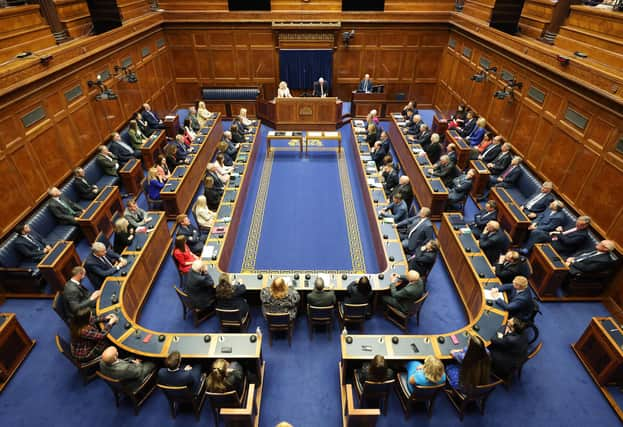Letter: The ‘modest measures’ from some of the UK’s foremost constitutional experts which offer a solution to Stormont impasse


A new report published by the Institute for Government and the Bennett Institute for Public Policy sheds light on the current democratic deficit and provides hope for a solution to Stormont’s collapse.
The paper is titled, “Constitutional change in Northern Ireland”, and is packed to the rafters with proposals from many of the UK’s foremost constitutional experts. However, in its conclusions, its lead author, Lisa Claire Whitten, cautions that the paper offers no “panacea” for the Northern Ireland constitution but rather tries to understand the governing arrangements as they currently exist, and aims to highlight some of the shortcomings in the current system and proposed “a series of modest measures” to address them.
Advertisement
Hide AdAdvertisement
Hide AdSo, what are these “modest measures” and how could they be implemented?
The first proposal would basically change the “cross-community” voting to a system of weighted or parallel majority voting to address the growth of the third, or “neither”, designation, as opposed to the current bi-lateral nationalist and unionist designations.
The second proposal would be to reform the nomination process for first and deputy first ministers to reinstate something close to the original 1998 “agreed-derived system”. This could be part of the new weighted or parallel majority voting “across all three political communities”. The third proposal would be to transfer more powers to councils to address the democratic deficit that occurs when the executive collapses or the assembly is not sitting.
Another proposal involves the creation of new mechanisms to encourage business and civil society to participate in the decision-making process in Northern Ireland. However, it should be noted that a recent Organisation for Economic Co-operation and Development (OECD) survey shows that only 23% of people in the UK believe their voice matters in our political system.
Advertisement
Hide AdAdvertisement
Hide AdIreland fairs slightly better at 45%, which is higher than the OECD average, but both percentages are relatively low and indicate a general lack of political empowerment. In Northern Ireland, a lack of participation in politics is reflected in the low voter turnout in both council and assembly elections.
This sense of disengagement is not unique to Northern Ireland but we have the unique opportunity to do something about it through the provisions in the Good Friday Agreement (GFA) and St Andrews agreement. The GFA makes allowance for a consultative civic forum to comprise of business, trade union and voluntary sectors, and the St Andrews agreement included for a consultative forum.
In principle, a new civic forum could be created specifically to consider the type of institutional reforms described in this new report. The body would comprise of a carefully selected cross-section of citizens and come together to make policy recommendations. But the major difficulty in constituting a new civic forum or civic assembly is that there is no sitting executive or first and deputy first ministers and, secondly, there is a risk that the north’s two largest parties, DUP and Sinn Féin, might not support a new forum due to the electoral advantages gained through the more recent St Andrews agreement.
Nevertheless, during the “New Decade New Approach” negotiations major roadblocks were overcome so “where there’s a will, there’s a way”. Afterall, it is unbelievable that any political party would want to take us down a scorched-earth policy over the Windsor Framework.
Advertisement
Hide AdAdvertisement
Hide AdUltimately the final line in the report provides a clue as to how these Stormont reforms could be implemented. This highlights the importance of ensuring that the “UK’s most exceptional constitutional case is given due consideration and accommodation in any efforts to review or reform the fundamental arrangements of the state”.
This could be interpreted as a direct request to both our Secretary of State, Chris Heaton-Harris, and his Irish counterpart, Micheál Martin, to, firstly, acknowledge that Northern Ireland is an exceptional case, then to get involved, and if agreement can’t be reached with the Northern Irish political parties through negotiation, then let the people have a say through a newly created civic forum.
Brian Pope
Former Alliance Party councillor, ABC council, Banbridge